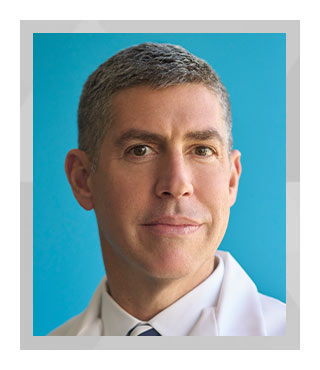Brendan Carr
Brendan Carr, MD, MA, MS, the Chief Executive Officer of the Mount Sinai Health System, is nationally recognized as a leader in academic medicine and health policy. He is a visionary physician-scientist who will propel Mount Sinai to further success in its mission to provide compassionate patient care through unrivaled education, research, and outreach in the diverse communities it serves.
 In partnership with the Boards of Trustees, Dr. Carr will chart a strategy for Mount Sinai and will oversee all critical strategic, operational, and business-building areas of the Health System, including its eight hospitals, the Icahn School of Medicine at Mount Sinai, and more than 400 ambulatory locations and physician practices.
In partnership with the Boards of Trustees, Dr. Carr will chart a strategy for Mount Sinai and will oversee all critical strategic, operational, and business-building areas of the Health System, including its eight hospitals, the Icahn School of Medicine at Mount Sinai, and more than 400 ambulatory locations and physician practices.
Dr. Carr, who has practiced clinical emergency medicine for more than 20 years, is a renowned emergency physician and health policy researcher. He has focused on building regional systems of emergency care, especially for trauma, stroke, cardiac arrest, and sepsis, and developing innovative delivery system solutions to create a more distributed and accessible acute-care delivery system. He has served in an advisory role to domestic and international organizations and is a member of the National Academy of Medicine.
Dr. Carr previously served on the faculty at the Perelman School of Medicine at the University of Pennsylvania and as an Associate Dean of the Sidney Kimmel Medical College at Thomas Jefferson University in Philadelphia. In addition to his academic accomplishments, Dr. Carr also served the U.S. Department of Health and Human Services in a variety of roles focused on improving trauma and emergency care delivery for the nation. Most recently, he was a special adviser on preparedness and response. In that capacity, his principal focus was on understanding how the emergency care infrastructure of the nation’s health care system could be strengthened to ensure the ability to respond during large-scale threats to the public’s health.
In his research, Dr. Carr initially focused on high-acuity care, but found that the full breadth of emergency care also includes lower-acuity care. As the health care delivery system has evolved, emergency medicine—including urgent care and telemedicine—has emerged as a key home for unscheduled acute care. Integrating emergency care into this broader health care delivery system has launched new research portfolios focused on understanding the association between unscheduled care and population health, how payment and regulatory functions influence care utilization and outcomes, and how delivery system innovations can make health care more timely, efficient, and patient-centered.
Dr. Carr earned his medical degree from Temple University School of Medicine, and completed both his residency in emergency medicine and his fellowship in trauma and surgical critical care at the University of Pennsylvania. He is an alumnus of the Robert Wood Johnson Foundation’s Clinical Scholars Program and holds master’s degrees in both clinical psychology and health policy research. An accomplished researcher, he has authored more than 175 manuscripts, and has received funding from the National Institutes of Health, the Agency for Healthcare Research and Quality, the Centers for Disease Control and Prevention, and multiple foundations.